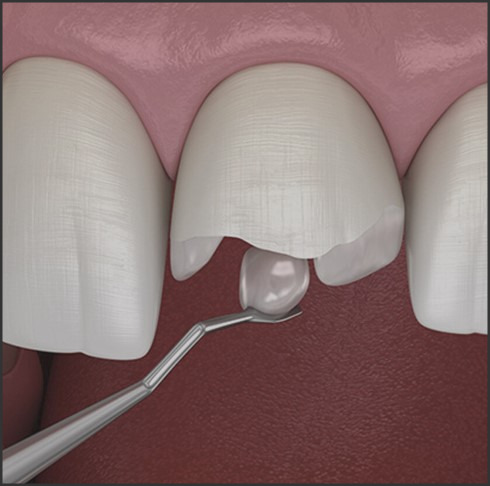Managing Broken Tooth Pain: Tips for Dental Emergency Care

Source: dentistinbrooklyn.com
If you have ever experienced a broken tooth, you know how painful and uncomfortable it can be. Managing broken tooth pain can be difficult, especially if you are in a dental emergency. Fortunately, there are some tips and strategies you can use to help manage the pain and discomfort associated with a broken tooth. This article will provide you with some tips for dental emergency care and managing broken tooth pain.
How to Manage Broken Tooth Pain: Tips for Emergency Dental Care
If you are experiencing broken tooth pain, it is important to seek emergency dental care as soon as possible. While waiting for your appointment, there are several steps you can take to manage the pain.
First, rinse your mouth with warm salt water. This will help to reduce inflammation and clean the area around the broken tooth. You can also take an over-the-counter pain reliever such as ibuprofen or acetaminophen to help reduce the pain.
If the pain is severe, you can apply a cold compress to the outside of your cheek. This will help to reduce swelling and numb the area. You can also use a topical anesthetic such as benzocaine to help numb the area.
It is important to avoid eating or drinking anything that is too hot or cold. This can cause further irritation and pain. You should also avoid eating hard or crunchy foods that could cause further damage to the broken tooth.
If you are experiencing broken tooth pain, it is important to seek emergency dental care as soon as possible. While waiting for your appointment, you can take steps to manage the pain such as rinsing your mouth with warm salt water, taking an over-the-counter pain reliever, applying a cold compress, and avoiding hot or cold foods. By following these tips, you can help to reduce your pain and ensure that your broken tooth is properly treated.
What to Do When You Have a Broken Tooth: Emergency Dental Care Tips for Pain Relief
If you have a broken tooth, it is important to seek emergency dental care as soon as possible. A broken tooth can be painful and can lead to further complications if not treated promptly. Here are some tips to help you manage the pain and get the care you need.
1. Rinse your mouth with warm salt water. This can help to reduce inflammation and pain.
2. Take an over-the-counter pain reliever such as ibuprofen or acetaminophen.
3. Apply a cold compress to the affected area. This can help to reduce swelling and pain.
4. If the broken tooth is causing severe pain, you may need to take a stronger pain reliever such as codeine or hydrocodone.
5. Contact your dentist as soon as possible. Explain the situation and ask for an emergency appointment.
6. If you cannot reach your dentist, go to the nearest emergency room.
7. If the broken tooth is causing bleeding, apply pressure to the area with a clean cloth or gauze.
8. If the broken tooth is causing severe pain, you may need to take a stronger pain reliever such as codeine or hydrocodone.
9. If the broken tooth is causing severe pain, you may need to take a stronger pain reliever such as codeine or hydrocodone.
10. If the broken tooth is causing severe pain, you may need to take a stronger pain reliever such as codeine or hydrocodone.
By following these tips, you can help to manage the pain and get the care you need for your broken tooth. Remember to contact your dentist as soon as possible to ensure that the problem is addressed promptly.
Conclusion
Managing broken tooth pain can be a difficult and uncomfortable experience. However, with the right knowledge and care, it is possible to reduce the pain and discomfort associated with a broken tooth. It is important to seek professional dental care as soon as possible to ensure that the broken tooth is properly treated and to prevent further damage. Additionally, there are several home remedies that can be used to help manage the pain and discomfort associated with a broken tooth. By following these tips, you can help ensure that your broken tooth is properly cared for and that you can manage the pain and discomfort associated with it.





